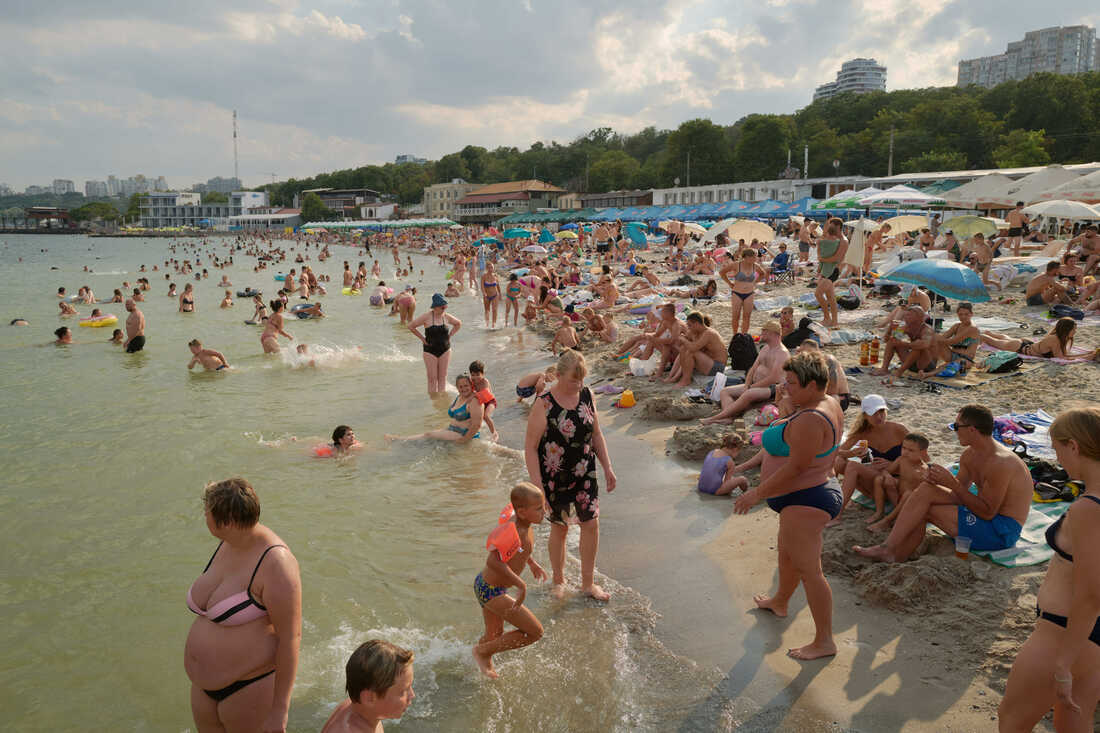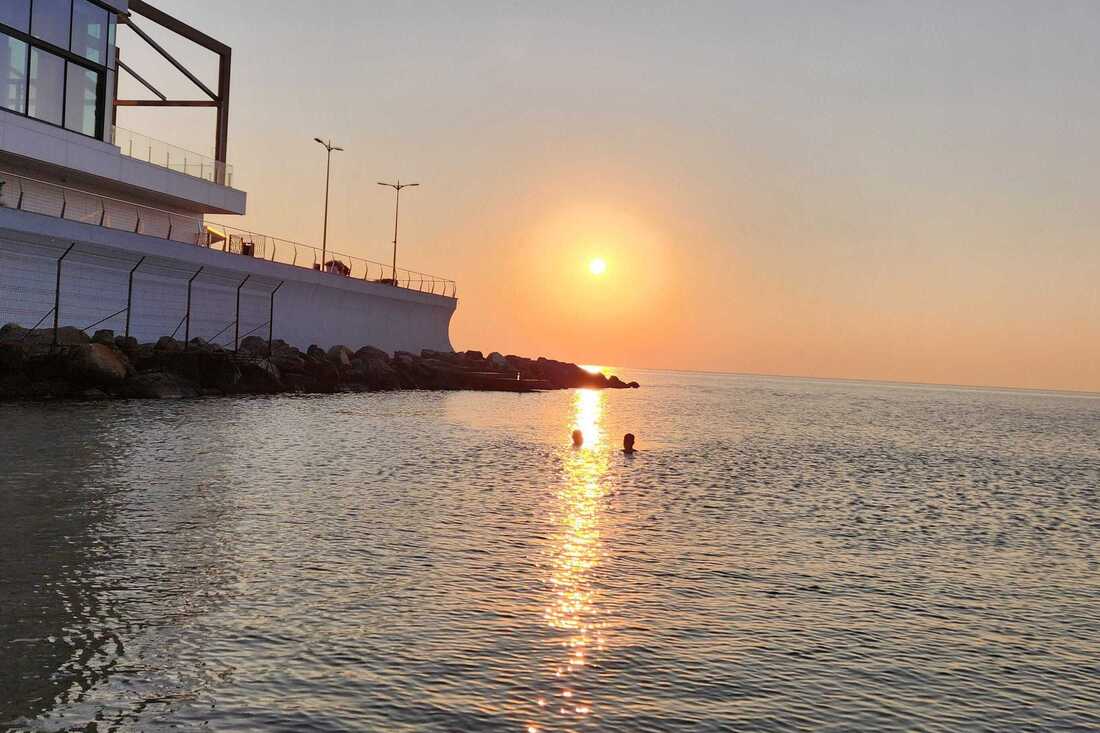
[ad_1]

People swim and sunbathe on a reopened seashore on the Black Sea on Aug. 22 in Odesa. When missiles and drone assaults first hit town — and Russian naval vessels began laying explosive sea mines across the port — the seashores had been closed. Warning indicators urged folks to maintain their distance.
Pierre Crom/Getty Images
disguise caption
toggle caption
Pierre Crom/Getty Images

People swim and sunbathe on a reopened seashore on the Black Sea on Aug. 22 in Odesa. When missiles and drone assaults first hit town — and Russian naval vessels began laying explosive sea mines across the port — the seashores had been closed. Warning indicators urged folks to maintain their distance.
Pierre Crom/Getty Images
ODESA, Ukraine — On a scorching, late-summer afternoon, Tatiana Sapunshtyn got here together with her daughter Polina to wade and sunbathe on a metropolis seashore in Odesa in southern Ukraine.
“This is the summer to be a little bit relaxed when we have the kids,” she mentioned. “It’s really important for everybody, for every family.”
The stylish seashores of Odesa, a brief stroll from glitzy inns and shoreside eating places, had been as soon as a draw for vacationers from world wide — a lot of them from Russia. In peacetime, cosmopolitan crowds talking a dozen totally different languages would swim right here collectively.
Now this stretch of Black Sea coast is an energetic battle zone, on the middle of a worldwide battle over grain shipments. Russian ships and plane usually fireplace missiles that strike Odesa.
When missiles and drone assaults first hit town — and Russian naval vessels began laying explosive sea mines across the port — the seashores had been closed. Warning indicators urged folks to maintain their distance.

People swim at sundown in Odesa.
Brian Mann/NPR
disguise caption
toggle caption
Brian Mann/NPR

People swim at sundown in Odesa.
Brian Mann/NPR
Even now, Sapunshtyn mentioned she was cautious of swimming out into the deeper water. They had been solely wading within the shallows.
“We don’t swim longer because I think it’s dangerous, actually, because [there are] a lot of bombs and nobody knows how it’s moving in the sea,” she mentioned.
One of these Russian sea mines — what Sapunshtyn calls bombs, meant to impede grain shipments from Odesa’s port — floated up on one other public seashore in early July. It was eliminated safely, with out inflicting damage or injury.
On this present day, native Odesans and vacationers from different components of Ukraine had been braving the cool waters of the Black Sea, regardless of the chance.
Lovers bobbed within the glittering waves. Parents performed with kids. There was the sound of laughter and Ukrainian pop music.
This rigidity exists in a lot of Ukraine: People battle to discover a precarious steadiness between regular life and the lethal battle that exhibits no signal of ending anytime quickly.
“Everything could end,” mentioned Khrystyna Shkorpeio. “But on the beach … I feel more relaxed, it’s easier to cope.”
She works in a café in Odesa and mentioned her days are sometimes disrupted by air raid alerts and missile strikes. Last winter was exhausting and chilly, with fixed energy outages, and the approaching winter guarantees to be equally arduous.
So, she mentioned, a day sunbathing with associates presents a respite from all that. “I’m really happy. It’s for me like a first vacation.”
Along the seashore, there was a lady doing yoga and an aged couple sitting shut beneath a bright-blue umbrella.
Dmytro Chernenko, a lanky 19-year-old in swim trunks had come together with his mom, each of them carrying seashore towels.
“We came to swim as soon as we learned the beaches had reopened,” he mentioned. But Chernenko acknowledged the truth of battle isn’t far-off. He might himself wind up within the military quickly.
He and others right here say they need to maintain residing in addition to they’ll, to show to Russia — and to themselves — that this battle will not put on them down.
Ukrainians say this type of resilience, this capability to search out pleasure and peace within the midst of battle, will assist maintain their nation within the battle so long as it takes.
[adinserter block=”4″]
[ad_2]
Source link